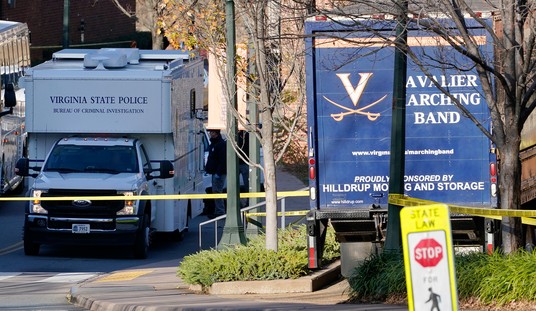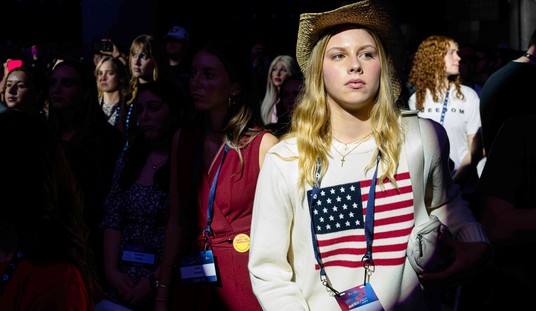Note: Spoilers.
I hadn’t written anything about the HBO miniseries True Detective until now, because I was never quite sure where it was going. The acting and writing has been superb, but it’s been a guessing game as to the point. The texture of gritty, pulpy detective stories has been a given, as has been the oh-so-predictable gratuitous sex and nudity that goes along with the genre and pretty much every HBO series ever aired (and Showtime, for that matter). Was this going to be a Call of Cthulu update, or another series where viewers get another intellectual Bobby-in-the-shower Dallas moment in finding out that they didn’t see what they were told they were seeing?
Neither, actually — and that’s what makes True Detective a bit of a rarity. In the finale of The Sopranos, the ending left the entire world puzzled over what the writers wanted to say (although I think I figured it out after a few days, which I explained at the time at the link). Instead, we got two detectives who got it wrong almost two decades earlier finally set out to get things right. In the process, they also had their illusions about themselves stripped away — even Rust, who after years of rejecting anything redemptive about existence, comes to a painful but liberating realization at the climax. Instead of indulging in screenwriting schizophrenia, we see the eventual exposure of madness in the villain and the effects of “true detective” work.
Andrew Romano calls this ending “close to perfection” at the Daily Beast, although he draws some different lessons than I did from it:
I’m sure that the web will spend most of this week obsessing over the more supernatural elements of Sunday’s finale. What did the drawings on the side of Childress’s shack—an ascending figure with antlers surrounded by black stars and flowers—really mean? Why did Childress tell Rust to “take off [his] mask”? And what the heck did Rust see in the domed “Carcosa” throne room before Childress leapt from the shadows and stabbed him? Was it some sort of astronomical hallucination? Or was he “mainlining the secret truth of the universe” again?
But as enjoyable as this sort of literary trainspotting can be, I also consider it window dressing. The true meaning of True Detective doesn’t have all that much to do with Robert Chambers or the stories he wrote way back in 1895. Instead, the true meaning of True Detective is about the power of storytelling itself. …
Pizzolatto could have made the Tuttles a clan of psychopathic murderers. He didn’t. He made them a clan of psychopathic murderers who subscribe to a very specific theology: a theology that alludes, crucially, to The King in Yellow—an external narrative that is supposed to create insanity, or as Pizzolatto “prefer[s]” to put it, “deranged enlightenment,” which sounds a lot like a skeptic’s view of religion as a whole. In other words, both Christianity and “Carcosa” are stories. Stories people tell themselves to escape reality. Stories that “violate every law of the universe” (as Rust once put it).
Of course Christianity and the Carcosa cult aren’t the same thing. But take your “fairy tales” too far, Pizzolatto seems to be arguing, and you can wind up in some pretty sick places.
All right, let’s posit that as a theme. But then, what are we to make of the series-long identity of the villain as the “green-eared spaghetti monster”? Atheists often ridicule the religious by scornfully comparing the idea of a deity with a “flying spaghetti monster,” made most famously by militant atheist Richard Dawkins. If the idea is to repudiate dangerous fairy tales, then the use of “spaghetti monster” seems every bit as much of a giveaway as the Tuttles’ cover as Christian school operators, especially when combined with Rust’s epiphany — and there is no better word — in the epilogue of the finale.
True Detective’s finale may have been the most memorably respectful of viewer loyalty in a long time, although as an eight-part miniseries rather than a seven-season series like The Sopranos, the pressure to deliver something artistic and intellectual was surely less. True Detective returns next season with a new cast and an all-new storyline, but it’s going to be difficult to top its premiere season.
The produces give an interesting behind-the-scenes look at the finale, which has spoilers of its own.
Update: Via commenter Eric in Hollywood, Ace has an excellent deconstruction of the finale.








Join the conversation as a VIP Member